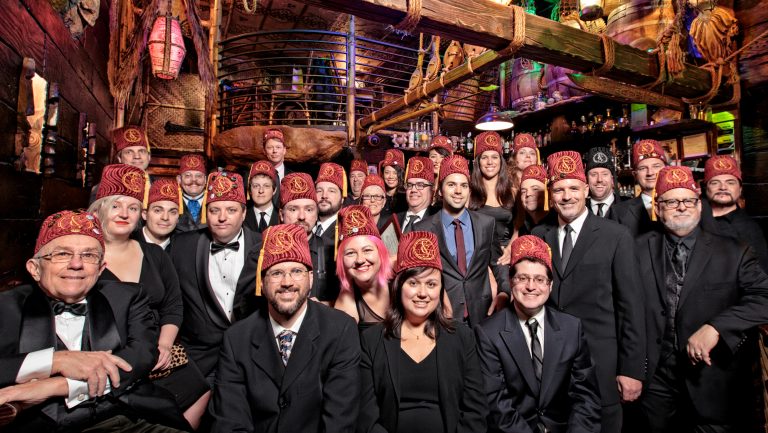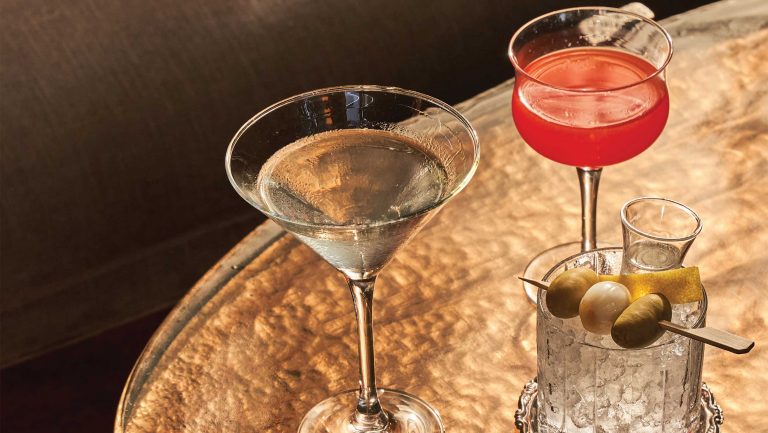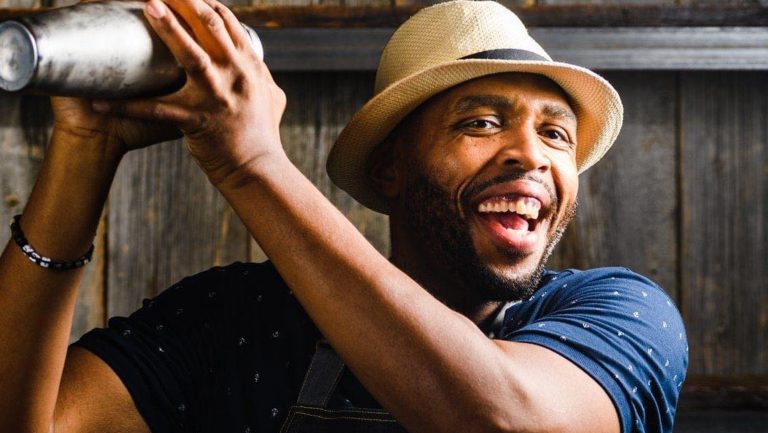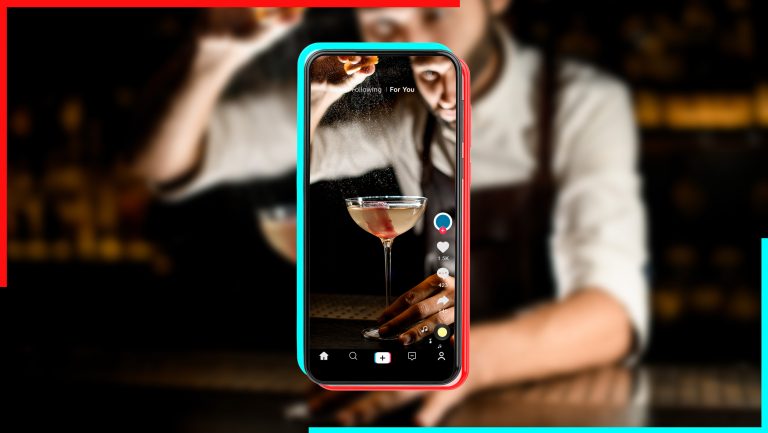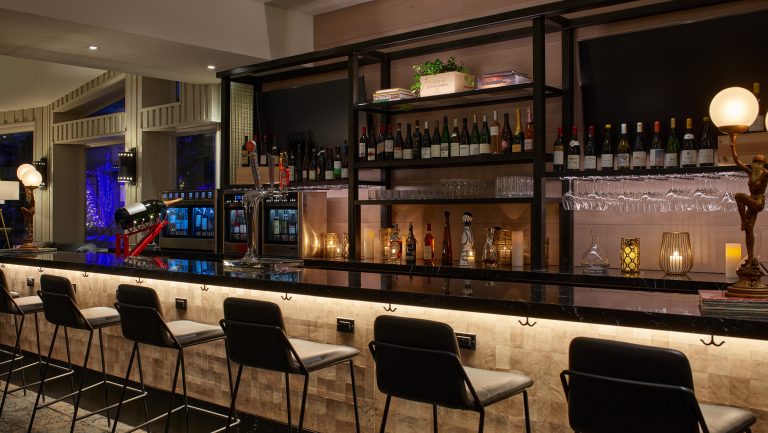Pedro Shanahan had a frog in his throat. “You can hear my voice right now,” he said on the phone from Los Angeles. “I talked at three spirits society events this week.”
Shanahan is the ”Spirit Guide” for Cedd Moses’ 213 Hospitality Group, which has bars in Los Angeles, San Diego, and Austin, Texas. He oversees loyalty programs at Moses’ single-spirit establishments: Seven Grand’s Whiskey Society, Caña’s Rum Society, and the Mezcal Collective at Las Perlas—all in L.A. He’ll tell you that even when it’s hard work, incentivizing attachment to your specialty bar makes excellent business sense. There are many ways to structure a loyalty program, but no matter how you do it, it helps with sales and cocktail R&D, strengthens supplier relationships, enhances the bar’s atmosphere and reputation, and shores up passionate, knowledgeable regulars.
Seven Grand opened a decade ago in then-desolate downtown L.A. “When we started the Whiskey Society,” Shanahan says, “we were trying to establish a community hub and create an atmosphere that would embolden other businesses to come down there.” Today the area is hot, in part due to his work. “We think the highest goal is to make the bar a second home,” he says, and “an ongoing place for knowledge.”

Don’t miss the latest drinks industry news and insights. Sign up for our award-winning newsletters and get insider intel, resources, and trends delivered to your inbox every week.
Shanahan’s clubs center on weekly events held in spaces off the main rooms. Though drop-ins can attend for $15 or $20, the focus is on memberships. Seven Grand’s Whiskey Society is free to clientele who buy a bottle to keep in a locker in Bar Jackalope, the private-pour back room. Caña’s Rum Society features a similar setup, or members can pay a yearly $120, which is also the fee for the Mezcal Collective. All of this loyalty translates into a bargain for consumers. The four samples poured at a recent event with Akashi Whisky were worth at least $60 per guest.
With social media helping drive attendance, society meetings are marketing tools. “We just opened a Seven Grand and a Las Perlas in Austin,” says Shanahan, “and we got people in the door off the bat by advertising the societies. The first events are free, so it’s free booze—and they come and find out it’s fun to learn.”
Evenings open with a welcome punch and close with live music, so attendees “exit meetings into a lively bar experience that makes them want to stay,” according to Shanahan. But the meat of the night is the tastings. Shanahan invites brand ambassadors, master distillers—anyone but PowerPoint-dependent marketers—to speak. “Members do ask questions,” he says, “and if speakers know their stuff, they’ll be able to answer. We expect them to be on their toes.”
Shanahan also expects brands to pay to pour for a packed house of enthusiasts. “We ask them to donate one bottle for the punch and two for every mark we’re tasting,” he says. “They can either leave the bottles behind or pay a $200 room fee.”
Brands are happy to sponsor events for the visibility, says beverage director Marie King, who runs two clubs at Tonga Hut, also in L.A. The tiki bar’s Rum Rhum Club meets monthly to listen to speakers and taste new releases and old rums, during evenings hosted by drinks expert Forrest Cokely. “Brands get exposed to 40 or 50 people, including other bartenders and bloggers,” Cokely says. “And a lot of members buy bottles for their home bars. So it’s a kind of sales tear sheet for brands.”
For Tonga Hut, the club is a revenue driver. Members pay a onetime $20 fee, plus $20 per event. “After wages, paying our speaker, and the cost of doing business for an extra two hours, I’m still pocketing $400 or $500,” King says. Club secretaries do the administrative work, keeping track of the 200 or so members and stamping “passports”—special journals in which members write notes and record their attendance. For each meeting, King creates a specialty cocktail with the sponsoring rum. The task comes with a benefit, she says: “I get to R&D every month with a new spirit.”
The Tonga Hut’s other club—the Loyal Order of the Drooling Bastard, named for a tiki-head fountain at the bar—is based on a challenge: Finish all 78 drinks in Jeff “Beach Bum” Berry’s book The Grog Log within a year, and get a dollar off premium cocktails for life. For members who want more, King is setting a new goal this year: Drink through Berry’s second book, Intoxica, for a special-edition mug that features a gold image of the fountain.
Cocktail clubs like the Loyal Order hark back to the 1950s, when Fort Lauderdale’s historic Mai Kai inducted those who polished off a list of 46 concoctions into the Oloke Maluna Society. Rum expert Martin Cate operates similar clubs at his tiki bars in San Francisco, San Diego, and Portland, Oregon, as well as a gin cocktail club at his gin bar, Whitechapel.
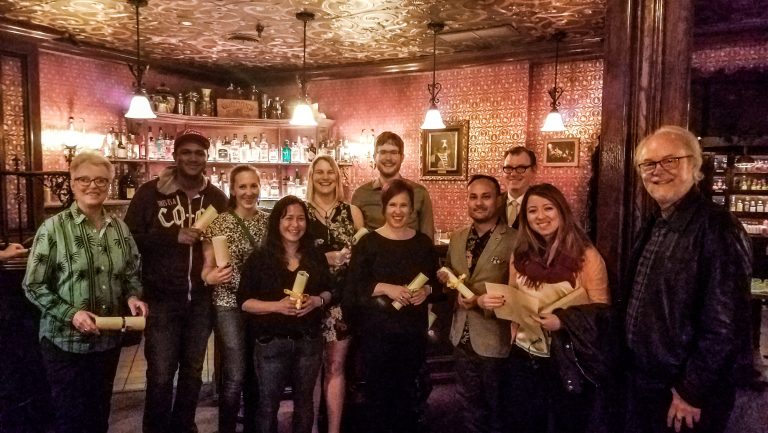
But the Rumbustion Society at Cate’s San Francisco bar Smuggler’s Cove is a beast of a different nature. A gamified vehicle for selling deep into the bar’s steady inventory of some 600 rums, the society includes incentivized levels, achieved through self-guided tasting courses in the history and production of different rum styles. Customers who move through the lessons and drink through a list of 20 one-ounce pours become a Disciple of the Cove, with a merit badge and the chance to progress to the next level. Go another 80 two-ounce pours for indoctrination as a Guardian, wherein you’re bestowed with a crimson fez and invited to tastings and quarterly meetings. Masters of the Cove, who consume 300 pours can join Cate on a distillery visit. And the perks for the 25 patrons of the Black Tassel Brigade, who’ve hit the 500 mark? Those are secret.
“Honestly,” says Cate, “I never thought they would go past 200, so we’ve been scrambling to come up with new things for them as they keep going.” But the scramble is worth it. To the achieve Guardian status and beyond, members must drink a number of “Immortals”—rare rums that can cost $200 a pour. Without the club’s “gamification of drinking,” says Cate, those bottles “run the risk of collecting dust.”
Not only is the society great for sales, return visits, and customer engagement, but it also helps the overall industry (and thus, Smuggler’s supplies) by putting rum on the map. “I’ve got customers that are deep into five-figure rum spending,” Cate says. “Some have built great personal collections. A few have become bartenders. We pride ourselves on this. It was the original intent of the Rumbustion Society to make smart rum consumers.” Masters who’ve taken a distillery tour, paying their own airfare to go work a bottling line and drink from the casks, says Cate, become “lifelong ambassadors for that brand.”
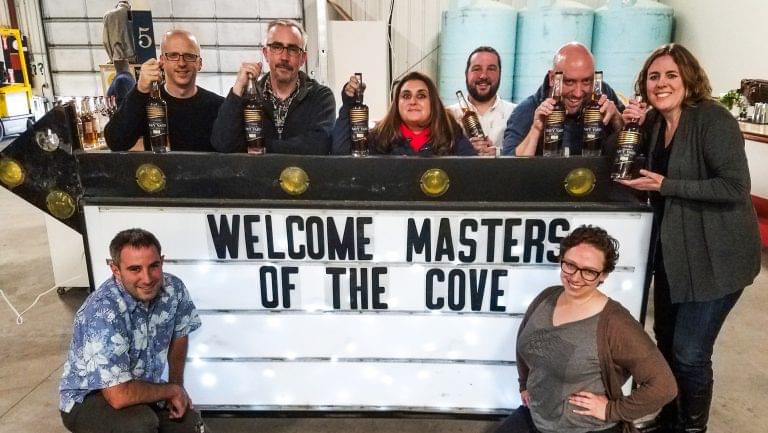
It’s no accident that most single-spirit loyalty programs are based in California; Cate credits the model to a San Francisco innovator, Julio Bermejo, the second-generation owner of Tommy’s Mexican Restaurant. In the 1980s, Bermejo started building a stellar collection of 100-percent agave tequilas. The artisanal brands he carried had no money for marketing. To raise the spirit’s profile and lure would-be aficionados, Bermejo started a tequila club. “Guests chose whatever they wanted to drink,” Bermejo says. “I didn’t care. I was interested in them trying at least half of the selections, which meant 24 tequilas at the time. I gave them a T-shirt and a diploma. What blew my mind was they wanted more. People were going, ‘Now what?’”
Tommy’s Blue Agave Club snowballed, growing into a behemoth with more than 8,000 members over the years, a notoriously difficult “PhD exam,” and levels from Master to Demi-God—a status conferring eligibility to accompany Bermejo on a distillery tour in Mexico. It’s great for both patron and bar owner. “The respect we get from distilleries is gratifying,” says Bermejo. “It’s helped to get access to distillery owners and also their spirits.”
The club structure Cate cribbed from Bermejo has been so successful that he’s adapted it to more of his bars. But it takes work to stay on top of inventory, achievements, and incentives. “You can’t be indifferent to people’s efforts,” Cate says. “You have to nurture them [so they] get more friends to come. You need critical mass.”
To off-load the paperwork involved, Cate sold an idea for a mobile website to his inventory management company, Bevager. The interface allows guests to sort Smuggler’s rums by name, price, and country of origin; track their own progress; and request the bar manager’s digital signature for proof of consumption. It’s a tool that Bevager now offers to other clients.
Michael Lazar might want to consider using it. Later this year, when Charles Phan’s American whiskey bar, Hard Water, opens an annex in San Francisco’s Ferry Building, Lazar plans to launch a loyalty program. As the bar’s whiskey ambassador, he points to one of the primary motivators behind bar-sponsored clubs: Pros like him are enthusiasts too. The people behind Hard Water have amassed far more rare whiskeys than are on display, and those bottles, Lazar believes, need to be shared with patrons who will appreciate them.
“Hard Water should be a destination for American whiskey aficionados worldwide,” Lazar says, “and creating a club adds prestige to that. Events should have gravitas. He ticks off some rarities that will be on offer: Julian Van Winkle private labels; a complete set of Kentucky Owl Whiskeys; the Heaven Hill bottlings for the Malts of Scotland Society, finished in sherry and port casks; a rare James E. Pepper Bourbon from 1950. “I don’t want to just open and sell them by the pour,” though, says Lazar. “I want people to sit around a table together and really dig into them. We put all this energy into collecting these things, and I want to see us use them in the most positive way.”

Dispatch
Sign up for our award-winning newsletter
Don’t miss the latest drinks industry news and insights—delivered to your inbox every week.
Betsy Andrews is an award-winning journalist and poet. Her latest book is Crowded. Her writing can be found at betsyandrews.contently.com.

